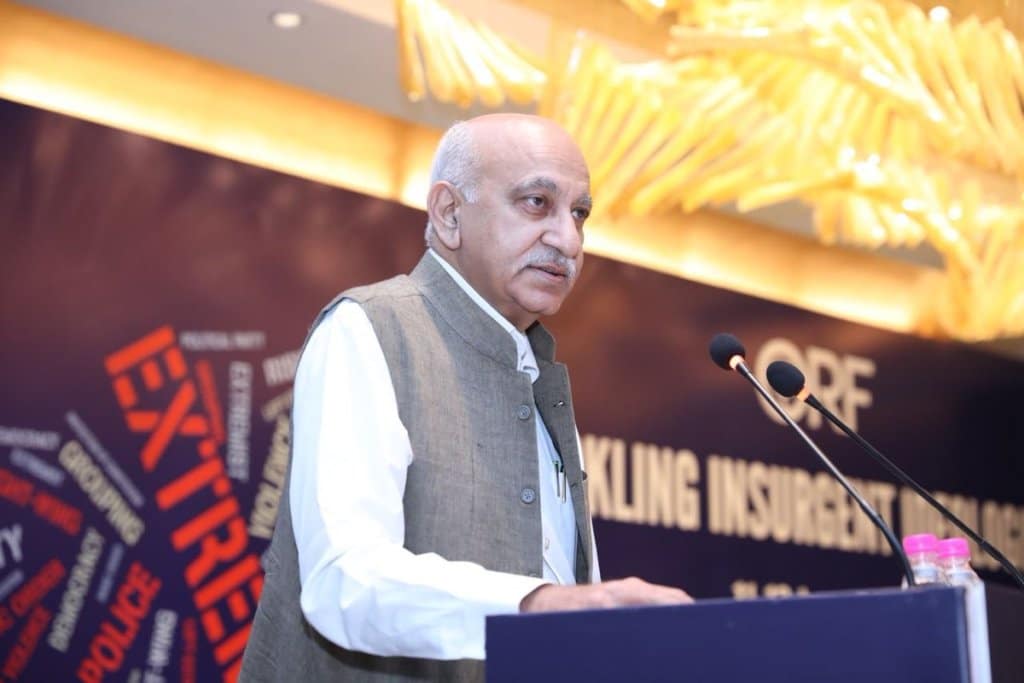An Indian origin U.S.-based journalist, who worked at The Asian Age nearly two decades ago, has accused the former Indian minister and the newspaper’s owner-editor MJ Akbar of sexually assaulting her.
Pallavi Gogoi, the chief business editor for National Public Radio in the U.S., opened about her work experience in The Asian Age 23 years ago, and her “painful memories” with MJ Akbar.
Gogoi wrote in length about her traumatic experience in a Washington Post piece, where she clearly said, “The M.J. Akbar I knew — editor in chief of the Asian Age newspaper — was a brilliant journalist. He also used his position to prey on me.”
Gogoi, from Shillong in North East India, started working in Asian Age when she was 22 years old and Akbar was the editor in chief of the paper. Akbar has launched three publications, news magazine Sunday, and two newspapers— The Telegraph, and The Asian Age. He also became India’s junior foreign minister in 2016, “a high-ranking government official who set foreign policy for the world’s largest democracy.” He was forced to resign last month due to multitudes of sexual assault and harassment allegations brought against him.
Gogoi has accused Akbar of raping her in a hotel room in Jaipur where Akbar called her to review her work.
She wrote, “In his hotel room, even though I fought him, he was physically more powerful. He ripped off my clothes and raped me. Instead of reporting him to the police, I was filled with shame. I didn’t tell anyone about this then. Would anyone have believed me? I blamed myself. Why did I go to the hotel room?”
She alleged Akbar used his position to sexually abuse her multiple times and even continued when Gogoi was sent overseas to work for the paper.
“I recall the time he worked himself into a rage in the London office because he had seen me talk in a friendly manner to a male colleague. After my colleagues left work that evening, he hit me and went on a rampage, throwing things from the desk at me — a pair of scissors, a paperweight, whatever he could get his hands on. I ran away from the office and hid in Hyde Park for an hour.”
The serial assault greatly affected her, Gogoi wrote. “I was in shreds — emotionally, physically, mentally. I knew I had to get out of London.”
Akbar, however, has responded to the Washington Post, stating his relationship with Gogoi was consensual. “This relationship gave rise to talk and would later cause significant strife in my home life as well,” he said in his statement to the paper. “This consensual relationship ended, perhaps not on the best note.” He also said that he has been the target of “a barrage of false and fabricated accusations, which I am now addressing.”
Akbar’s wife stated in a statement, “I don’t know Pallavi’s reasons for telling this lie, but a lie it is,” Huffington Post quoted her as saying.
After Akbar’s statement, Gogoi took to Twitter stating “Rather than take responsibility for his abuse of me and his serial predation of other young women who have courageously come forward, Akbar has insisted – just like other infamous serial sexual abusers of women – that the relationship was consensual. It was not.”
She pointed out “A relationship that is based on coercion, and abuse of power is not consensual.”
My statement: pic.twitter.com/7xoADdIHoX
— Pallavi Gogoi (@pgogoi) November 2, 2018
Speaking about numerous sexual harassment allegations which were brought against Akbar and his lawsuit against Priya Ramani, a writer who first accused him by name, Gogoi said, “I’ve always felt that Akbar is above the law and justice doesn’t apply to him.”
“He has called these allegations “baseless and wild,” and has filed a lawsuit against one of the journalists who has spoken out. It doesn’t surprise me. He feels he is entitled to make up his own version of “truth” today, just like he felt entitled to our bodies then.”
Please add a line or two about her purpose of writing the piece, of supporting other women who have voiced against Akbar.
